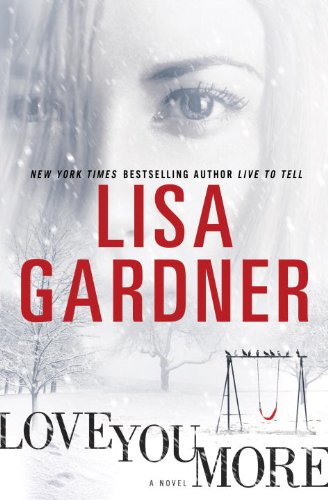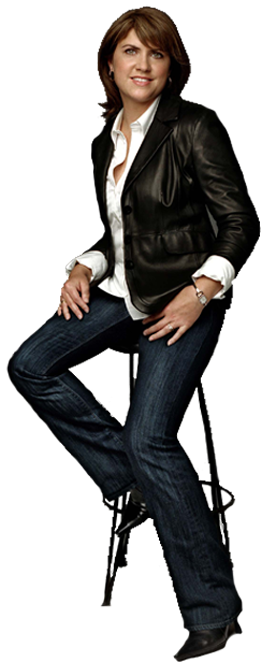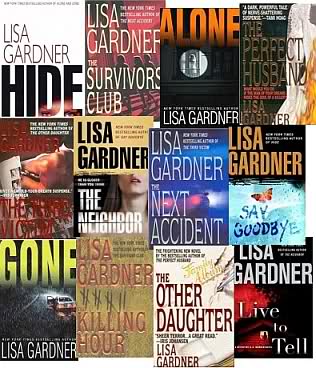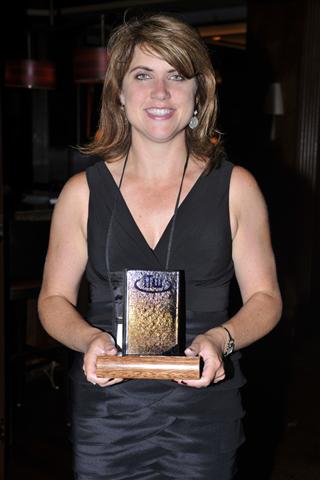 After I finished this stunning thriller, I lamented that I hadn't read Lisa Gardner before. That was immediately followed by the realization that I have 12--12!--books by her waiting to be read. And read they will be, because Lisa Gardner is dynamite, and Love You More is the kind of book you will be an evangelist for; it's not just an excellent mystery, it's a compelling story of parental love, romantic love, lost love, dashed dreams, despair... and hope.
After I finished this stunning thriller, I lamented that I hadn't read Lisa Gardner before. That was immediately followed by the realization that I have 12--12!--books by her waiting to be read. And read they will be, because Lisa Gardner is dynamite, and Love You More is the kind of book you will be an evangelist for; it's not just an excellent mystery, it's a compelling story of parental love, romantic love, lost love, dashed dreams, despair... and hope.
The opening scene is a textbook heart-stopper, and sets up a fine puzzle:
Who do you love?
"He asked the question, and I felt the answer in the weight of my duty belt, the constrictive confines of my armored vest, the tight brim of my trooper's hat," and Tessa slowly unbuckles her belt and gun.
She asks him where Sophie, her six-year-old, is, and he yells at her to put the gun on the table.
"I looked my husband in the eye. A single heartbeat of time."
Who do you love? She thinks of Sophie. She sets the belt down on the kitchen table.
"And he grabbed my Sig Sauer and opened fire."
Whew.
Gardner then switches to Sgt. Detective D.D. Warren of the Boston PD, as she waits for her lover, Alex, to leave for work so she can run into the bathroom. Faintly echoing Massachusetts State Trooper Tessa Leoni's thoughts, they say "love-yous" and D.D. makes it down the hall just in time to throw up. Lying on the floor, contemplating the probability of pregnancy, she is called to a murder site by State Police Detective Bobby Dodge, her former partner. After she connects the dots--missing child, state police on site, but Boston PD jurisdiction--she's no longer nauseated, she's pissed off, a normal mode for her. Arriving at Leoni's house, she finds her crime scene messed up by troopers; the body of Brian Darby, Tessa's husband; an Amber Alert for Sophie; and Tessa Leoni in shock, concussed, covered with bruises and watched over by her union rep and legal counsel.
Warren is immediately frustrated by Leoni's obfuscations. She looks around, thinking, "So many things that could go right in a house like this. So what had gone wrong?" She moves into action, angry about the crime scene ("They trampled [it]. I don't forgive. I don't forget."), and forces the EMTs to give her five minutes with Tessa by playing the missing child card.
In alternating chapters, we gradually learn about Tessa: a child out of wedlock; a desire to provide for herself and her daughter that led to her becoming a state trooper; then, three years ago, falling in love with Brian, who seemed to love both her and her daughter in equal measure. As Tessa unwinds her story, we read about domestic disturbance calls she attended, and what she learned about lying. So when she's questioned about what happened, she's very careful to lay the groundwork for her defense: "My husband.... Sometimes... when I worked late. My husband grew angry. He hit me." That morning, she says, she feared for her life. She shot her husband. "Then I went looking for my daughter." Later at the hospital, she thinks:
"The doctor saw me as a victim, just as the EMT saw me as a victim. They were both wrong. I was a survivor and I was currently walking a tightrope where I absolutely, positively could not afford to fall.
"Think strategically. Speak carefully. Sacrifice judiciously."
So, two strong, smart women face off, Warren beginning the game a skilled detective knows how to play, Leoni continuing the game already put into play. And what a game it is.
D.D. and Bobby immediately start down the wrong path, led by the obvious evidence, and in the course of their investigation go down more wrong paths, subtly led by Tessa and by D.D.'s faith in her own snap judgment and expertise. You can see why D.D. thinks she is right, but she's no match for a woman determined to save her daughter. Or, as D.D. believes, a woman who killed her daughter as well as her husband.
Lisa Gardner writes this novel in two voices, D.D.'s and Tessa's, and by using the first person for Tessa's voice, makes the story immediate and heartbreaking. Tessa seemingly loves her daughter more than anything, while in counterpoint, D.D.'s pregnancy makes her wonder if she wants to be a mother, if she can be a mother; even, given Tessa's example, if female law enforcement officers were meant to live lives of domestic bliss. White picket fences and Sig Sauers just don't mesh. D.D. is so tightly wrapped that she doesn't even know how to bring this up with Alex, and thinks she is hiding her condition successfully until Tessa calls her on it.
Gardner is a master at intricate plotting and, as you unravel the tangled threads of this story, you'll think you know what happened, but you don't; halfway through the book, you'll know a large part of what has actually happened, but not why. At the point where the tension is unbearable, there are still 100 pages to go, and you will have no idea where they will take you. At the end of Love You More, you will be astonished at the complex plot, but this is more than a satisfying thriller; this is an emotionally deep exploration of love and trust, and you will long be thinking about the central theme: Who do you love, and what would you do to save them? --Marilyn Dahl








 One of the most compelling themes in Love You More is that of choice. Both D.D. Warren and Tessa Leoni are strong women forced to make difficult--sometimes impossible--choices that cut straight across traditional gender lines. How did this theme develop as you wrote the novel?
One of the most compelling themes in Love You More is that of choice. Both D.D. Warren and Tessa Leoni are strong women forced to make difficult--sometimes impossible--choices that cut straight across traditional gender lines. How did this theme develop as you wrote the novel? This is the fifth novel to feature Detective D.D. Warren, but you have also written six FBI Profiler series novels and two stand-alone novels. What are the challenges--and, conversely, the rewards--of writing series vs. stand-alones?
This is the fifth novel to feature Detective D.D. Warren, but you have also written six FBI Profiler series novels and two stand-alone novels. What are the challenges--and, conversely, the rewards--of writing series vs. stand-alones? 
 New York Times bestselling suspense
novelist
New York Times bestselling suspense
novelist  After I finished this stunning thriller, I lamented that I hadn't read Lisa Gardner before. That was immediately followed by the realization that I have 12--12!--books by her waiting to be read. And read they will be, because Lisa Gardner is dynamite, and Love You More is the kind of book you will be an evangelist for; it's not just an excellent mystery, it's a compelling story of parental love, romantic love, lost love, dashed dreams, despair... and hope.
After I finished this stunning thriller, I lamented that I hadn't read Lisa Gardner before. That was immediately followed by the realization that I have 12--12!--books by her waiting to be read. And read they will be, because Lisa Gardner is dynamite, and Love You More is the kind of book you will be an evangelist for; it's not just an excellent mystery, it's a compelling story of parental love, romantic love, lost love, dashed dreams, despair... and hope.